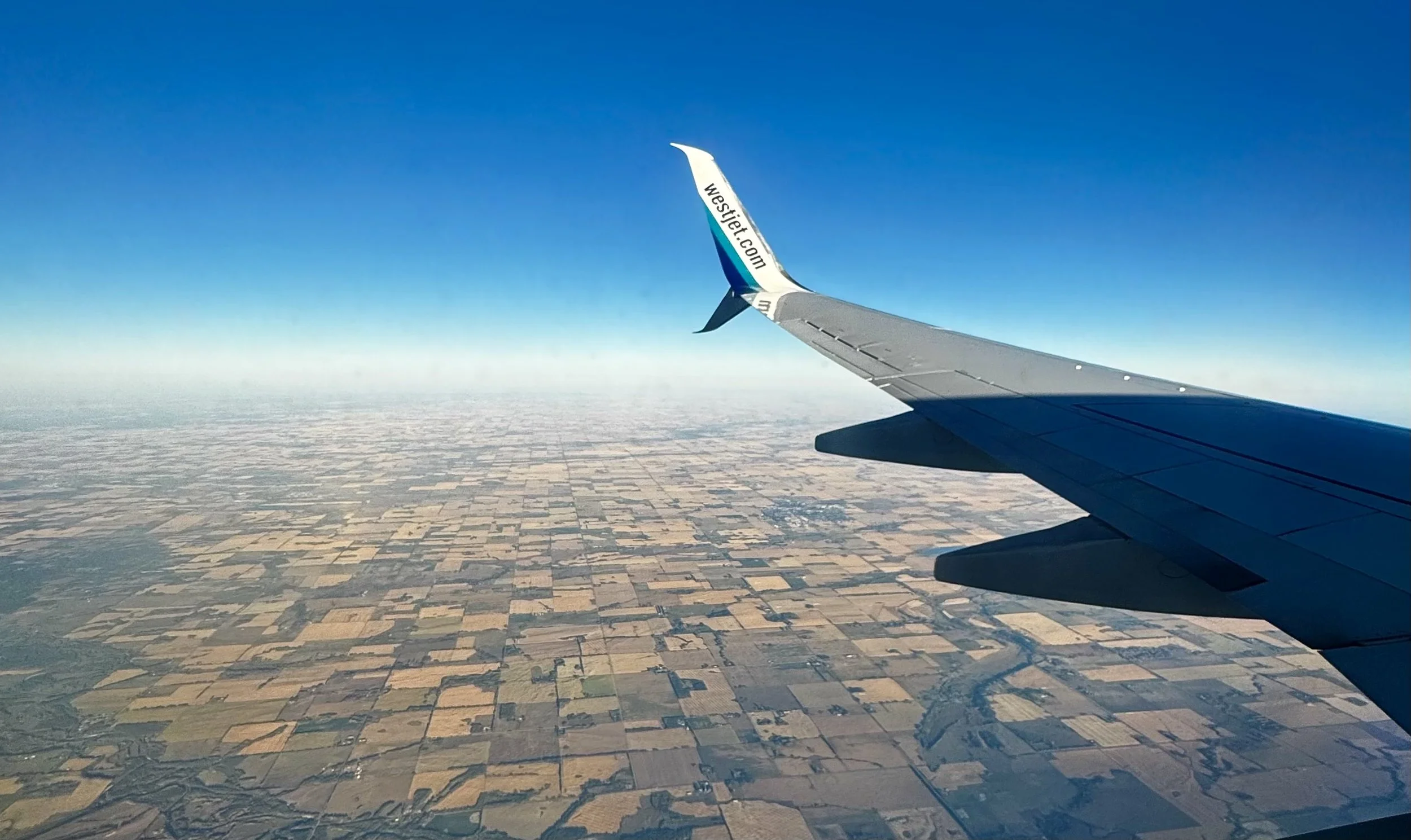Do we need an Apocalypse?
Observations while flying at 26,000 feet in the air.
I've sat in the window seat of an airplane before, but this time it seemed more special. There was nothing out of the ordinary about it. Looking out, I could see beautiful golden squares of Alberta farmland. I could also see trucks and cars traveling along the prairie highways, and from 26,000 feet in the air, I was beholding a moment in time with my country at peace. Looking to my right, my family and the other passengers were occupying their time on a remarkably uneventful flight to Calgary. The wonder of travel has not dimmed in my life. In the most nerdy and eye-rolling ways, I’m still like, “Wow, someone is going to bring me a coffee and give it to me while I fly on a seat moving at over 800 kilometers per hour! Can you believe it?” I love it.
I appreciate moments like this, especially amid rising tensions in the world.
If you ask me how I understand the concept of privilege, my response would be: a privilege is anything I don't have to think about. Off the top of my head, here are some of those things: drinking clean water out of a tap, lighting any given area with a flick of a switch. Soap, cooking with spices, toothpaste, heating my home when it's -40° outside - I can do this without having to light a fire. We also have this great invention called the refrigerator, which grants me the convenience of not needing to hunt for my food. I would also mention having access to a dentist in case I get a sore tooth, as well as access to healthcare. Spend one week without soap or any of these blessings, and life begins to take on a whole new perspective.
Most importantly, I can connect with any of my friends or family around this planet from my laptop or the 6-ounce smartphone that I carry in my pocket. I have the ability to connect.
What if all of these went away?
This scenario is the world imagined by Emily St. John Mandel in her 2015 novel, "Station Eleven." The story that unfolds for the reader is one where the world is in a state of collapse after a devastating flu virus claims the lives of most of humanity. Twenty years after this devastation, a small group of artists wanders around the Great Lakes, entertaining other survivors in various towns and cities where they reside. This traveling symphony plays classical music and performs Shakespeare while struggling to survive in a world that no longer readily uses electricity, the internet, or other modern conveniences. The characters who remember those modern miracles are captive to remembering how little they thought of them when they were available. I enjoyed the book for its emotional weight, which carried it without the usual tropes of crazed, savage zombies.
Science fiction-inspired pandemics are frightening; this generation will be defined by one. But war and conflict can accomplish the same devastation as imagined in post-apocalyptic tales. Images from war-torn areas of Ukraine and Palestine remind us of this. I love entertaining and thought-provoking books. With all the existing tension in the world, it would do us all a lot of good to take a moment to consider all that we take for granted. I don’t want to be an alarmist and paint a dark, ominous future for Canada, but like many of us, there are a lot of things that I used to believe were impossible and are now a matter of documented history.
All major conflicts, whether domestic or international, have local origin stories.
It starts at one table, one community, and then spreads.
Most of us underestimate the impact we have on them. Forest fires begin with a spark and spread. We are not immune to this virus of violence that spreads with a specific amount of pressure. Gratitude is an effective anti-viral counteragent. Gratitude is deceptively disruptive to conflict. If we inoculate ourselves with gratitude, we build an immunity towards the wildfire violence that consumes places in the world. If we can be grateful for what we have, we have less reason to take what belongs to others.
I don’t want to live in a world where it would be unsafe for my family to travel, and I do not want to live in a time when our country is at war, domestically or on the international stage. Using the metaphor of the forest fire, I’ll riff on Smokey The Bear here, “Only you can manage wildfires.” Conflicts are a part of the human experience, but we need to manage them before they get out of control. Gratitude has a way of centering the gravity and substance of your character; the result of this being that you become less emotionally volatile. A grateful person isn’t out to make sparks.
Tomorrow, my family will visit Kirkjufell mountain in Iceland. A dream and privilege rarely experienced by generations past. Living in a country experiencing peace paved the way for this to be possible. I don’t want to lose this for me or others. I also received this experience with gratitude because while I may not like everything in the world, I am very grateful for what I have. I am privileged enough to pick up the phone and call someone I haven’t seen in a while. These blessings grow from good soil.
Thank you for reading, friend. Please find time this week to put your hand to the plough and tend to the peace of your community.

